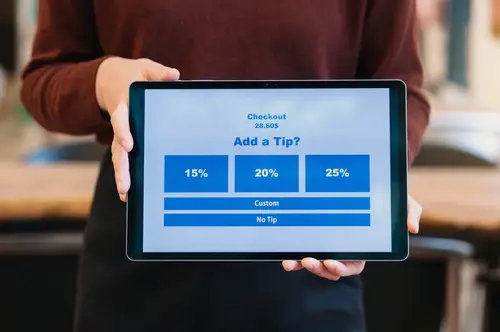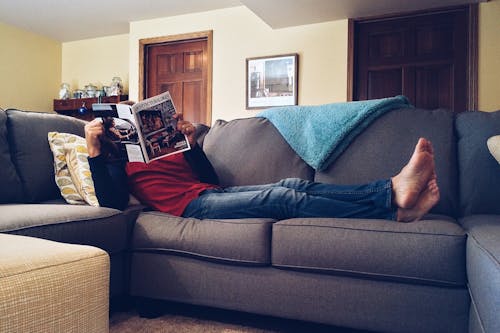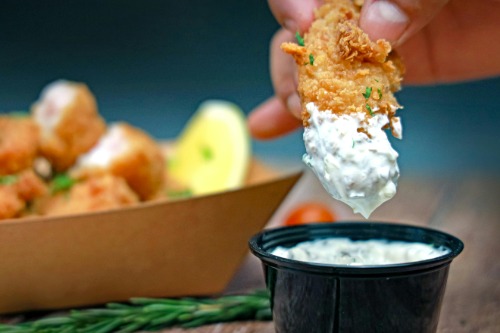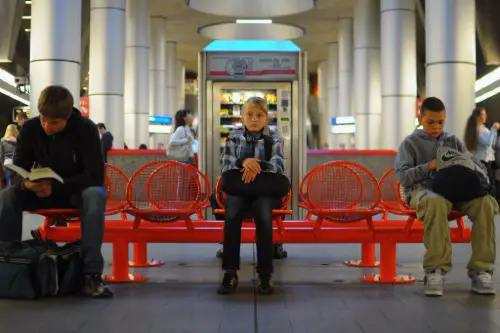1. Talking About Money

In the U.S., openly asking someone how much they earn or what they paid for something is considered rude. Many Americans view money as a private subject, tied to personal identity and social status. Outsiders might see it as harmless curiosity, but locals often feel it crosses a line. This taboo comes from a cultural emphasis on individuality and financial independence.
That said, Americans may still discuss money in contexts like negotiating a salary or talking about student loans. Those situations are seen as practical rather than nosy. But if someone asks about your rent or income at dinner, it can feel intrusive. Visitors who aren’t aware of this can come off as impolite even if they mean no harm.
2. Not Tipping Service Workers

Tipping is deeply ingrained in American culture, especially in restaurants and cafes. Many servers rely on tips as a significant part of their income, since minimum wages for tipped workers can be much lower than the standard. For someone unfamiliar, skipping a tip might seem like no big deal. But to Americans, it signals disrespect and cheapness.
The standard is around 15–20% for restaurant service, and that expectation extends to bartenders, hairdressers, and taxi drivers. Even if the service is mediocre, most people still leave something. Europeans in particular often struggle with this because tipping norms are different at home. But in the U.S., failing to tip leaves a bad impression quickly.
3. Cutting in Line

Americans take queuing very seriously. Whether it’s waiting for coffee, boarding a plane, or standing in line for a movie, order matters. Jumping ahead without permission is seen as unfair and selfish. Outsiders might not view it as a big deal, but here it can cause tension fast.
This expectation is rooted in ideas of fairness and “first come, first served.” People believe the system works best if everyone follows it. Even in casual situations like a food truck, cutting can spark dirty looks or even confrontation. Respecting the line is an unspoken rule worth noting.
4. Overly Direct Compliments on Weight

Commenting on someone’s body—whether they’ve lost or gained weight—is tricky in the U.S. Even if it’s meant kindly, many Americans see it as invasive. This stems from sensitivities around body image, health, and personal boundaries. What sounds like praise in another culture can feel judgmental here.
People often stick to safer compliments like “You look great” or “I love that outfit.” Directly pointing out changes in size can trigger insecurities or make someone uncomfortable. The cultural focus on individual choice means people don’t want assumptions about their appearance. Outsiders who aren’t aware of this nuance can accidentally offend.
5. Overstaying Your Welcome

In many cultures, lingering after a visit is a sign of warmth and friendship. But Americans tend to prefer more defined time boundaries. If someone says they need to go to bed or get back to work, it usually means it’s time to wrap things up. Ignoring that hint can feel inconsiderate.
This comes from the value placed on personal space and time management. People like their schedules respected, and socializing is often balanced with obligations. Staying too long can create awkwardness or even irritation. Visitors who assume longer visits are polite may be misinterpreted.
6. Talking Loudly in Public

Many visitors underestimate how self-conscious Americans are about noise levels. Talking loudly on a train or in a quiet café can turn heads fast. Even though Americans can be chatty, they expect some level of discretion in shared spaces. Outsiders who don’t match this volume may come across as disruptive.
The U.S. has a strong culture of respecting “personal bubbles.” Excessive noise is seen as invading that bubble. Exceptions exist in bars, concerts, and sports events, where loudness is celebrated. But in everyday public spaces, it’s usually frowned upon.
7. Using Strong Body Odors

Personal hygiene is a big deal in the U.S. Americans shower frequently, use deodorant daily, and expect others to do the same. Someone with noticeable body odor can be judged harshly. Outsiders from cultures with different norms may not realize how strong this expectation is.
This habit ties into broader cultural values of cleanliness and professionalism. Smelling “fresh” is associated with respect for others. Even mild natural odors can be stigmatized in workplaces or schools. Visitors unaware of this can unintentionally make people uncomfortable.
8. Asking About Age

In some places, asking someone’s age is casual and normal. But in the U.S., especially with adults, it can feel intrusive. Age is often linked to career, attractiveness, and even bias, so people guard it carefully. Outsiders may not see the harm, but it’s a sensitive point for many.
It’s especially taboo to ask a woman her age, though attitudes are slowly changing. The question can seem like a judgment on where someone “should be” in life. For safer conversation, Americans prefer asking about hobbies or interests. This keeps things light and nonjudgmental.
9. Double Dipping Food

Sharing food is common in many cultures, but in the U.S., dipping a chip or veggie twice in a communal bowl is frowned upon. It’s seen as spreading germs. What feels like no big deal elsewhere can make Americans uncomfortable. The rule is simple: one dip per bite.
This connects to broader hygiene expectations. People don’t want to risk getting sick from someone else’s saliva. Even among friends, double dipping is often called out jokingly. To fit in, it’s better to grab a plate and make your own portion.
10. Overly Personal Questions at First Meeting

Americans value friendliness but also personal boundaries. Asking about someone’s politics, religion, or family situation right away can feel pushy. These are topics people usually save for closer relationships. Outsiders who dive in quickly may surprise or unsettle new acquaintances.
Instead, small talk is the go-to. Topics like sports, weather, or local food help people warm up. This light conversation is a cultural tool for building comfort. Once trust develops, deeper questions come naturally.
11. Not Respecting Personal Space

Physical closeness varies a lot across cultures. In the U.S., people prefer about an arm’s length when talking. Standing too close or touching too much can feel invasive. Outsiders may mean to show warmth but can trigger discomfort instead.
This preference is linked to the American idea of independence and individuality. Personal space is treated like invisible property. Even on crowded trains, people try to avoid unnecessary contact. Giving space shows respect for boundaries.
12. Calling After 9 P.M.

Phone etiquette is another area where outsiders can stumble. In the U.S., calling someone late at night is often seen as rude unless it’s urgent. Many people wind down early due to work schedules. A late call can feel disruptive or inconsiderate.
Texting has become the safer default. It allows people to respond on their own time. Emergencies are the main exception, where late calls are expected. Visitors unaware of this may accidentally disturb people.
13. Discussing Religion Casually

Religion is deeply personal in the U.S., despite its large role in society. Bringing it up casually, especially with strangers, can be awkward. People fear offending or being judged for their beliefs. Outsiders may not realize how sensitive the topic is.
Instead, many Americans wait until they know someone well before discussing faith. Even then, they tread carefully. This norm reflects the value of respecting diversity and avoiding conflict. Visitors should take cues from how open the other person seems.
14. Chewing with Mouth Open

Table manners matter in the U.S., and chewing with your mouth open is a big faux pas. It’s seen as sloppy and unpleasant to those around you. Outsiders who don’t share this rule can come off as rude. The expectation is to chew quietly with lips closed.
This stems from cultural ideas of politeness and self-control. Eating neatly shows respect for others at the table. Parents teach this early, so the standard is widespread. Visitors who adapt quickly earn quiet approval from locals.
This post 14 American Taboos That Outsiders Break Without Realizing was first published on American Charm.


